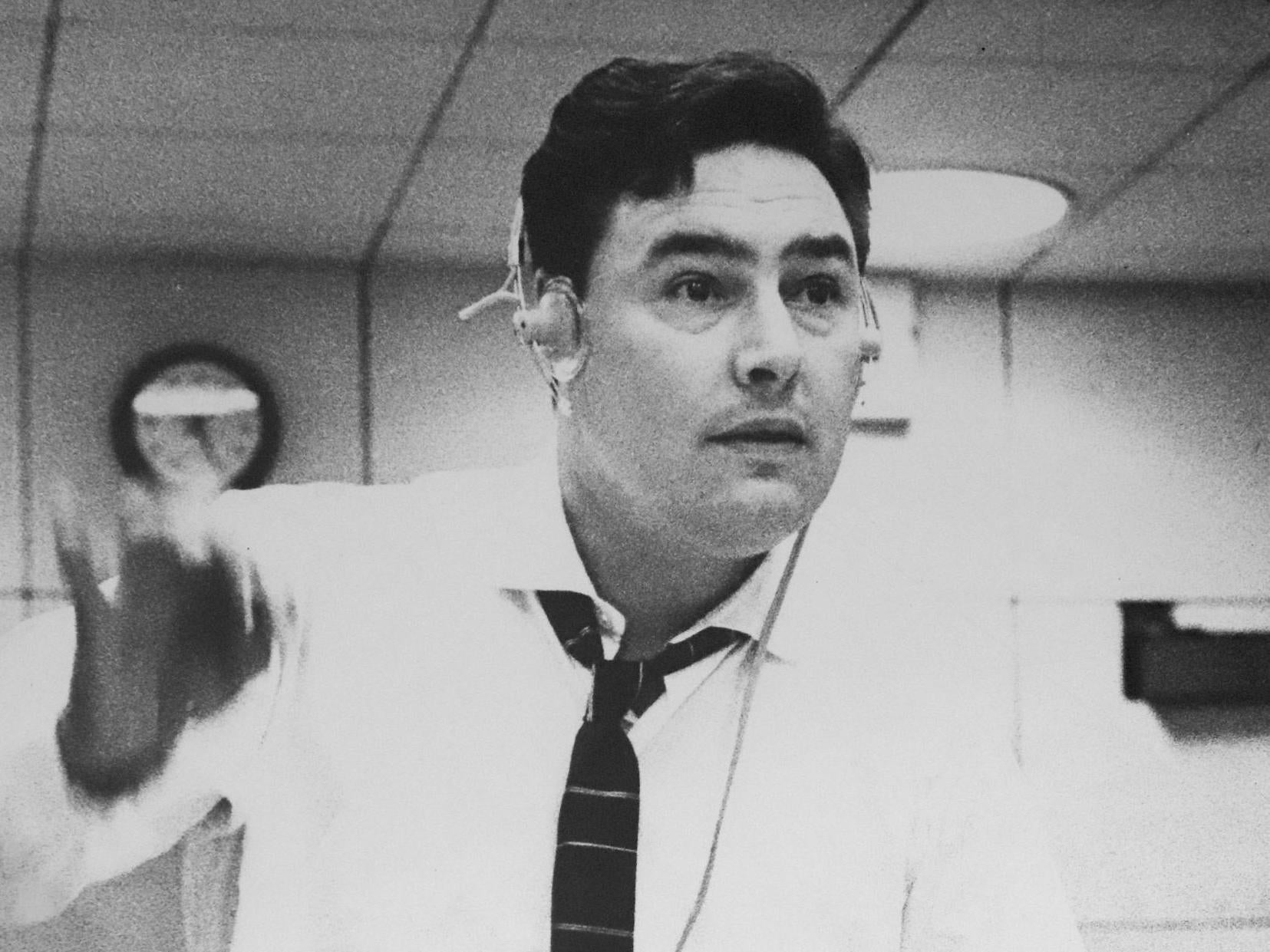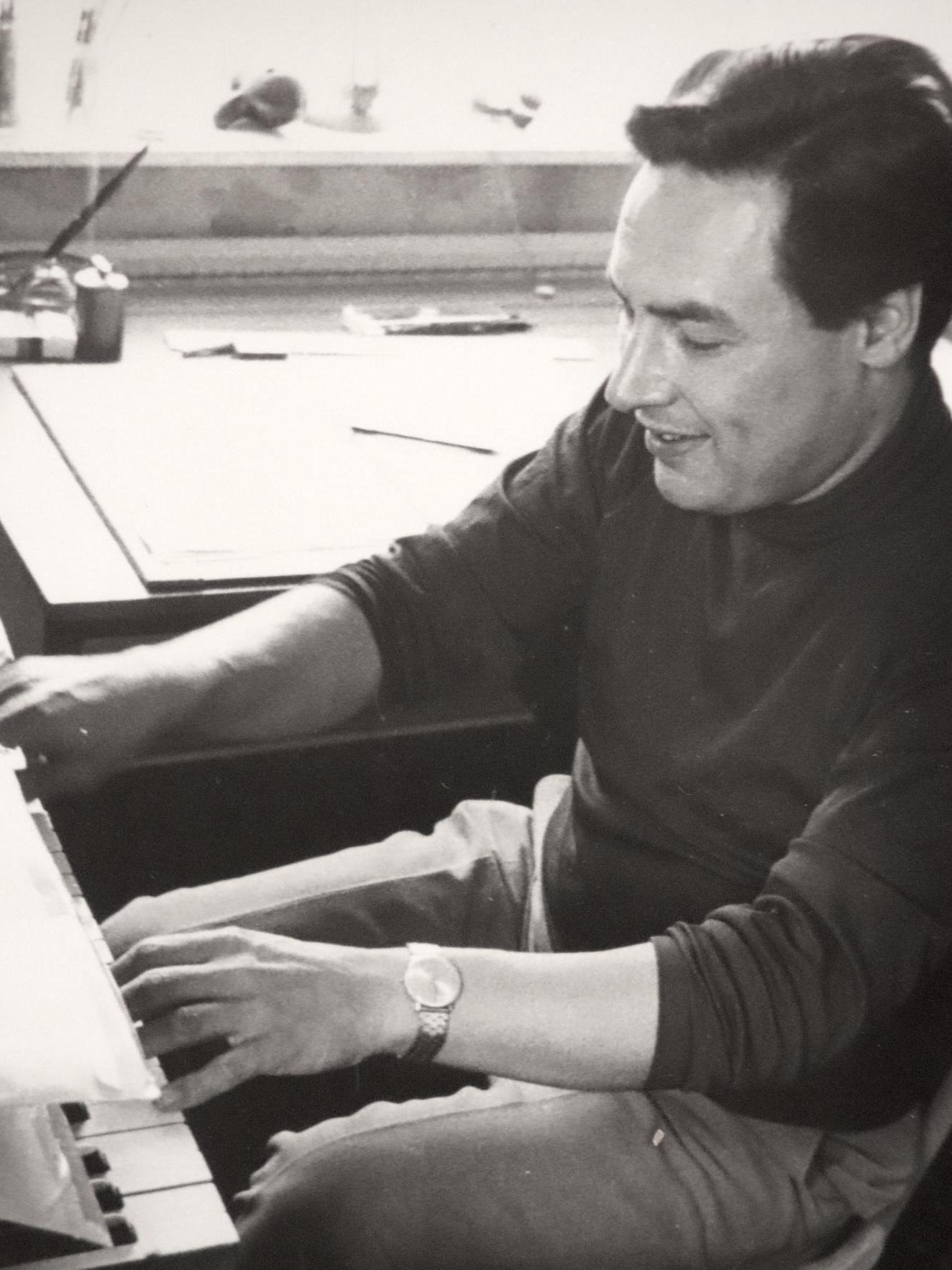John Gregory: Maestro in charge of the light-music brigade
A big hitter of the recording world, the composer operated in the heyday of Denmark Street and enjoyed a career of great length, distinction and influence

John Gregory, who has died aged 95, was perhaps one of the most significant and forward-looking figures in British light music throughout the course of the second half of the last century.
Effortlessly at ease on all sides of the cultural divide, he was a musician of rare versatility – conductor, composer, music publisher, arranger, record company executive and performer.
He was one of the big hitters of the recording world, operating in the heyday of Denmark Street – Britain’s Tin Pan Alley – and enjoying a career of great length, distinction and influence.
Born Primo Giovanni Giuseppe Gregori in north London, he was one of five children whose parents were recent Italian immigrants. His father, Francesco Gregori, an accordion player, became the resident musician, first at Quaglino’s, and later at the Cafe Royal.
Educated at Bowling Green Lane School, young Gregori’s prodigious musical talents saw him study the violin with Alfredo Campoli. He intended to make a career as a classical concert artist, but an unfortunate injury to an elbow while playing football eventually put paid to that idea. He started his professional career as a member of his father’s orchestra and at the same time he studied theory at the London College of Music.
After anglicising his name to John Gregory (having made his first broadcast in 1944), he was performing at The Wellington Club two years later alongside the likes of Steve Race, Johnny Dankworth and Ken Moule. While entirely self-taught, he was able to write quickly and with a feel for time and place, and he was soon supplementing his income by delivering arrangements for the BBC Revue Orchestra and the Lew Stone Band.
Later operating in big band Latin American circles, he initially began recording under the guise of Nino Rico before becoming known worldwide as Chaquito. Proving popular in Japan, two LPs, Chaquito and Thriller Themes, both entered the UK album charts.
In 1954, Gregory left Philips Records to move to Oriole to help launch Embassy Records, its products selling exclusively through the Woolworths chain of shops. Here, lesser known artists and session musicians such as Rita Williams, Mike Redway, Mike Sammes and Denny Dennis would cover popular releases often by international stars such as Perry Como and Bing Crosby. “Stupid Cupid” covered by Maureen Evans even outsold the official release by Connie Francis.
Having inherited his father’s perfect pitch and as a violinist himself, Gregory’s feel for string writing shines effortlessly throughout his numerous Cascading Strings albums. His trick of making the entrances of the various string families fractionally overlap each other gave the lustrous effect for which these LPs became so renowned. Ably led as always by Reg Leopold and staffed by a brigade of London’s very best studio musicians, these evergreen easy listening albums proved highly successful, both commercially and artistically. Particularly popular was the 1971 LP Four of Hearts, which at its core had Gregory’s masterly arrangement of his late father’s former signature tune, “Plaisir d’Amour”.

In 1961, Gregory took charge of that year’s Eurovision Song Contest entry and, as principal guest conductor of the BBC Radio Orchestra from 1974 onwards, he also appeared on Music While You Work. On television, his talents could be found illustrating an animated version of the Lone Ranger alongside episodes of Hark at Barker, starring Ronnie Barker and Josephine Tewson. While his input into the film world was often distinguished, the end results perhaps less so. Here his efforts ranged from The Jazz Beat in 1960 (starring Anthony Newley), to Hugh Hudson’s Revolution, 25 years later.
As a composer, while essentially a miniaturist, Gregory’s mood was unfailingly light-hearted. Throughout, clear-cut shapes and simple yet direct harmonies were neatly overlaid with a wealth of melodic invention. Nowhere is this more apparent than in his popular 1976 Ivor Novello award-winning composition, “Air to a Stained Glass Window”, which was inspired by a visit to Chartres cathedral. No less impressive is the richly melodic “Just an Old Fashioned Waltz” or the delightfully evocative “Golden Memories”. Much more cerebral is “A Face in the Clouds”, while “Un Jour d’Ete”, a sadly neglected miniature tone poem, cleverly brings together the many diverse elements in his technique.
He married Joan Martin in 1953. She survives him together with four children, two boys and two girls.
John Gregory, musician, born 12 October 1924, died 23 April 2020
Join our commenting forum
Join thought-provoking conversations, follow other Independent readers and see their replies
Comments
Bookmark popover
Removed from bookmarks